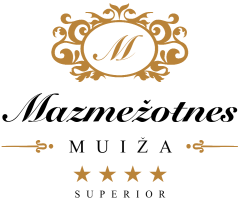Anatol Lieven

Notwithstanding the collapse of Russian Empire, Prince Lieven being faithful to Tsar formed the volunteer regiment of about 3500 men, mostly Germans and Russians from the former Tsarist army. In his unit fight Latvians and even Estonians. On January 15, 1919, he issued an order to form Liepaja Volunteer Rifle Corps. After a few weeks his units already went in battles against the red army. With fighting they walk through the Courland and in May under command of J.Balodis being enclosed in the content of Latvian brigade enters Riga. One of his battalions performed guard duty in Riga, and two other battalions in Liepaja. In the battle at the lake Mazais Baltezers Lieven was seriously injured.
In 1920, he returned to Mežotne and after an agrarian reform recovers just a part of their family estate - Mazmežotne manor. In the beautiful Mežotne castle was established the State Experimental Station and in the 30s there was moved Agricultural High School of Jelgava, giving to school the name Mežotne. All the years of Russian occupation and even later there are running Beet Selection Station.
There in Mazmežotne manor was established the leader farm and cultivated sugar beets. Anatol Lieven was not afraid of work, so he personally was very involved in many activities connected to agriculture-related jobs. In his garden was established Seed Experimental Station. It was constructed by him. Anatol Lieven also owned the brick factory. It was mainly managed by his manager.
Surrounding farmers relied to Prince Lieven with the attitude of admiration.
As an example, Prince Lieven shortly before the war, for the building of Latvian church contributed 300,000 bricks.
Anatol Lieven was happy that he could be occupied with a job that has given the satisfaction. He was not very sad about the loss of Mežotne Castle, because Mazmežotne gave a lot of joy and also a roof over head.
Anatol Lieven died in April 1937. Prince was buried in the family cemetery at the church of Mežotne.
Funeral was held with the great honor, because he was a very popular in Latvian national community. His funeral attended such representatives of the Latvia President Karlis Ulmanis like Army Commander Gen. K. Berķis and Army Chief of Staff Gen. M.Hartmanis.
In Anatol Lieven's family remained a widow Elizabeth, sons Paul, Karl Johan, and daughter Dina.
Son Karl Johan was a good father's farm assistant. After completing his studies at Bauska primary school and Riga Commercial school, the new prince went to Berlin University, but after a year he left his studies and came back to help his father to manage with the leader farm and the large brick kiln in Mazmežotne.
After the military service in Latvia Army Karl Johan is a successful horseman at the army division in Mežotne. In 1935, he got married to the Baroness von Kleist.
At the beginning of Germans repatriation, Karl Johan's wife with her daughter Kseniya went to Germany. Lieven with his mother remained in Mazmežotne because he was assimilated and believed to the government promises that our nation is not in a danger. In the autumn of 1940 Lieven emigrate to Sweden. Some time he lives in Sweden, then in Cuba and eventually goes to Canada, where acts as a representative of the foreign companies.
A few years later, in September 1944 Mazmežotne Manor suffered during the Second World War.
Karl Johan loved very much his homeland Latvia and wanted to attend it yet, but illness disrupted his plans and on December 12, 1996 in Toronto died representative from one of the oldest families in Baltic - Lieven - the head of the family, Prince Karl Johan Lieven.
The deceased in a grief left his spouse Princess Louise and daughter Kseniya von Rosen.

